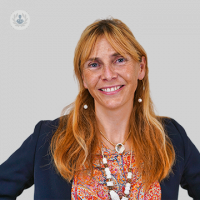How can a clinical psychologist help with a physical health problem?
Autore:Clinical psychologists are increasingly recognised as a key part of a clinical team, and patients generally regard their support as invaluable. But what exactly do clinical psychologists do? If you’ve been referred to a clinical psychologist, what can you expect? We asked Dr Morwenna Opie, clinical psychologist at the London Cardiovascular clinic, for an insight into this undervalued profession.

A clinical psychologist is well-placed to help a patient understand all the key factors (thoughts, actions, environment, stressors, biology, life-style) that empowers a patient to become active in managing their own health. We know that patients who feel they understand their condition and play a role in managing it do better.
Although a person’s approach and relationship with their illness is often a key factor, sometimes what becomes the focus of our work is rather others’ expectations, financial concerns, cultural situations, stigma / embarrassment, trauma or isolation. Generally we find that people can cope with the situation they are in – but can struggle to cope with the thought of things getting worse. In these cases it helps to teach ways to really live in the present moment, with a strong sense of what we stand for and who we want to be.
With the luxury of time to really understand the key dynamics at play, opportunities to enhance treatments, and alert to barriers to overcome, a psychologist can liaise with other key members of a patient’s healthcare team. This can help to ensure a programme of care that keeps the patient, and their words, worlds and needs, truly at the centre of individual care plans.
What does this mean in practice?
In reality this can mean interventions as varied as helping patients realise they can tolerate their most feared scenarios, either by experiencing them in session, or by my modelling living-out these worst-case situations successfully. I’ve done everything from feigning a faint and wetting myself in public (dosing myself in watered down apple-juice), modeling inducing and tolerating a panic attack by hyperventilating, and licking my own boot to demonstrate we do not need to fear germs.
Some of my favourite sessions one hot sunny summer was lying down chatting and bird-watching in a London park many afternoons to get used to the anxiety that came up for a patient who didn’t like touching the ground. The challenging days are walking patients through trauma situations and helping them realise they can experience all the emotions and sensations that this brings without needing to avoid or run away from them.
None of us like to see distress – least of all those of us drawn to caring professions – but I have learnt that this is the only way to be sure that our mind has nothing it can throw at ourselves that we feel we have to control to prevent it derailing us.
What can a patient expect from a session with you?
The same approach doesn’t get the same results in everyone. Where one person needs playful teasing, another needs compassion and zero-pressure, or a careful self-issued rationale. Some patients benefit from appropriate self-disclosure of walking the talk of health and emotional issues. For others this would distract them from much needed exclusive self-focusing.
Often once people make it to my office they have had a lot of assessments and told their stories many times. There is no substitute for me hearing from them, but I try to limit assessment to half the session.
I then discuss the therapeutic approach I think will suit them best. In some cases this is traditional Cognitive Behavioural therapy (helping people identify the thinking patterns and behaviours which are maintaining a low mood or anxiety, and helping them challenge them). Increasingly when it comes to health, trauma and adjustment issues I advocate the rational for ACT - Acceptance and Commitment therapy.
Either way I explore approaches and get consent for a therapeutic approach, and make sure that everyone leaves the first consultation with some practical ideas and techniques to try to help them reach the therapeutic goals that we have identified together.



